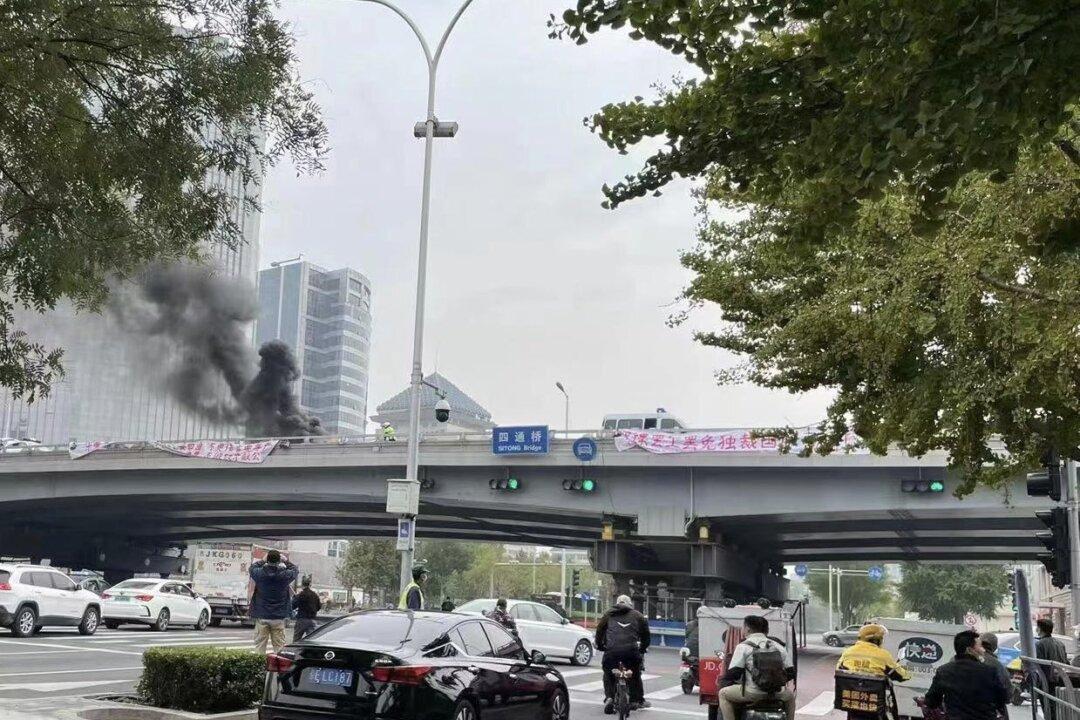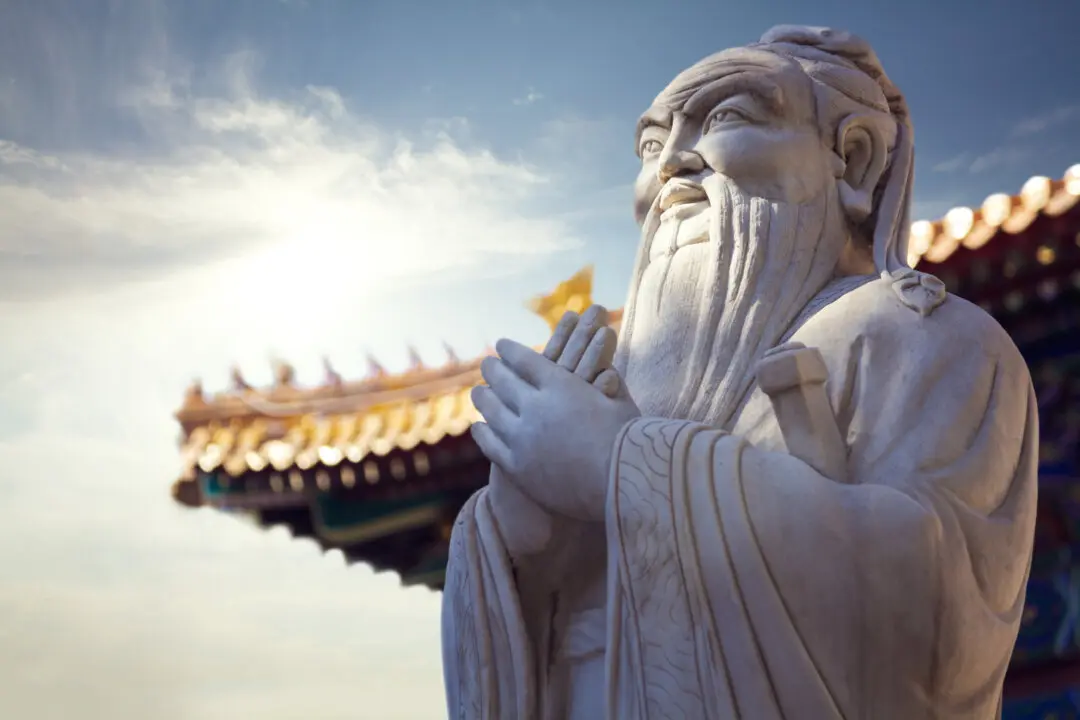Peng wrote on one of the banners: “We don’t want PCR tests; we want to eat. We don’t want lockdowns; we want freedom. We don’t want lies; we want dignity. We don’t want the ‘Cultural Revolution;’ we want reform. We don’t want a leader; we want votes. We don’t want to be slaves; we want to be citizens.”
On the other banner, Peng advocated strikes by students, teachers, and workers. He also demanded the removal of Xi Jinping, whom he called a “dictator and traitor.”
Video clips and photos of Peng putting up the banners and using a loudspeaker to broadcast what he had written on the two banners soon went viral in China and overseas. Smoke could be seen billowing from Sitong Bridge, as Peng burnt what looked like tires to generate smoke to attract the attention of passers-by.
The bridge is located in the northwestern downtown Haidian District of Beijing, which is home to several prestigious Chinese universities, including Peking University and Tsinghua University, and is close to Zhongguancun—China’s silicon valley.
Censorship
The Chinese regime acted swiftly to block information on the protest spreading online, which happened just days before the CCP’s 20th national congress—an event that takes every five years when the CCP makes political reshuffles and decisions on the policies for the coming five years.Additional sensitive words have added to the regime’s already expansive online censorship efforts.
In addition to the words and phrases on the banners, expressions such as Sitong Bridge, Beijing, Haidian (the district), banners, brave man, and courage have been censored from Chinese social media platforms.
People sharing photos and videos of Peng’s protest have found their social accounts terminated or banned.
The phrase “I have seen it!” has also been banned on Chinese social media, after people started using it to refer to the protest.
Recruiting Bridge Security Guards
Beijing authorities responded to the one-man protest by immediately further tightening its security around the national congress on for Oct. 16.In addition to police patrolling and checking people in the areas near Sitong Bridge, the local authorities in Beijing urgently put up advertisements to recruit temporary security personnel for the sole purpose of keeping an eye on bridges in Beijing. The job title for these security guards is “bridge watchers,” as translated directly from the Chinese phrase.
The Chinese language edition of The Epoch Times viewed the recruitment ads and contacted several of them for comment.
One of the HR agencies told The Epoch Times that they only want male bridge security guards.
According to the job posts, the daily wages of the bridge security guards range from 240 yuan ($33) to 360 yuan ($50). Applicants should be at least 5.5 feet tall and aged between 18 and 45. They are provided a tent on or below the bridge where they are assigned to work. There are normally two guards working together, who can take turns resting.
Another recruitment agency told The Epoch Times that they wanted people for watching the bridges for the whole month of October. He said that his agency needed about 20 people, but he knew some other agencies that want to recruit at least 100 people.
Online posts show that these security guards wear fluorescent vests on which are written “Chinese militia.”
One staffer of a recruitment agency told The Epoch Times that they recruit temporary security guards all the time, not just for the CCP’s 20th national congress but for a routine “maintenance of social stability” as required by the regime
The Epoch Times reached out to the Haidian District Urban Administrative and Law Enforcement Bureau, and a female staffer replied that it was the sub-district office that was recruiting bridge security guards. The Epoch Times reached out to the Haidian sub-district office and had received no reply as of press time. Xisanqi Sub-district Office, one of the offices in the Haidian district, denied recruiting any security guards to monitor bridges in its jurisdiction.
Peng’s online name “Zaizhou” means “holding up the boat” literally in English, and it originates from an ancient Chinese saying, “The water that bears the boat is the same that swallows it up—that advises rulers to treat their people well, as they are the ones that will otherwise overthrow them.”





